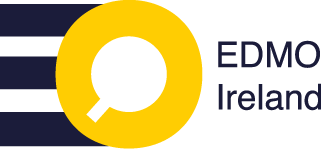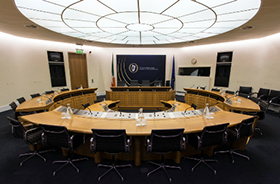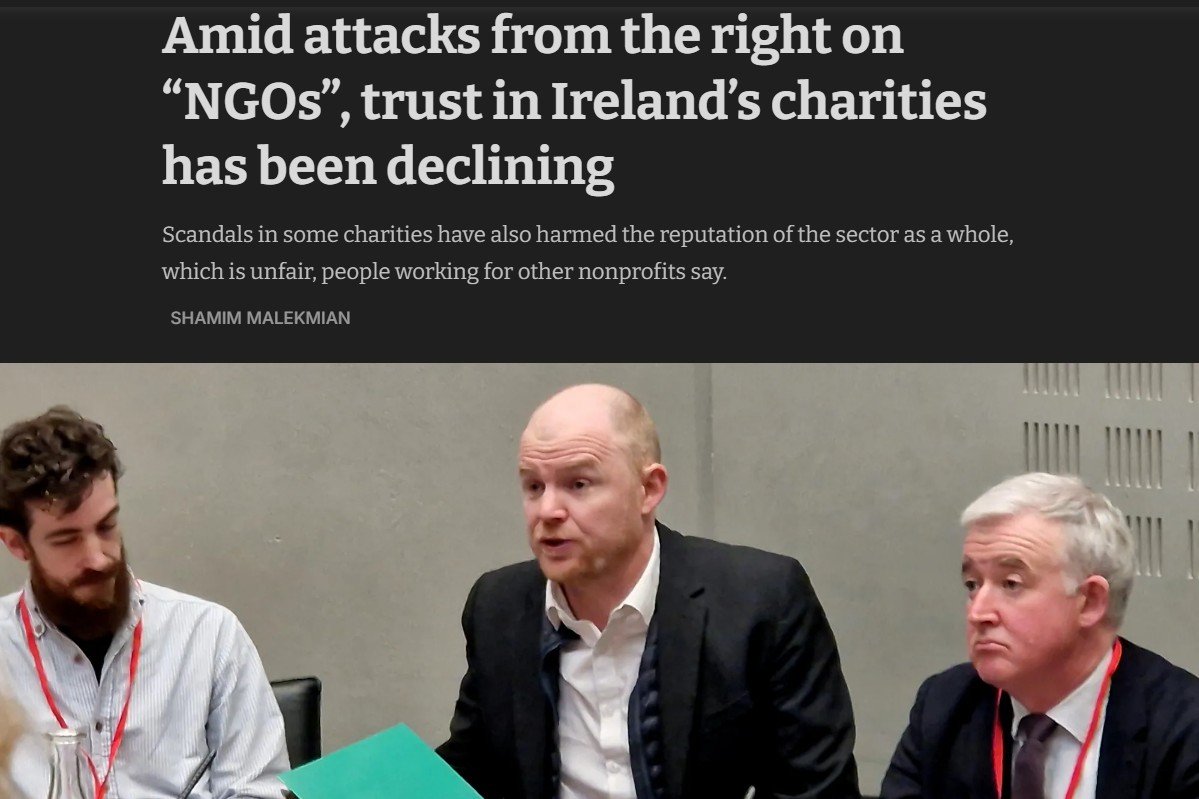EDMO Ireland made the following submission to the Submission to the National Counter Disinformation Strategy’s Public Consultation:
Counter Disinformation and protect freedom of speech using a rights based approach
This is a rights-based strategy. Measures to counter disinformation must uphold human rights, including the freedom of expression. In addition, all members of society should be empowered to seek, receive and impart information and ideas, while acknowledging that the right to freedom of expression must respect the rights of others to privacy, protection from discrimination and to data protection under the General Data Protection Regulation (GDPR).
What are your general views in relation to this principle?
Freedom of expression, a cornerstone of democratic societies, is crucial for fostering diverse perspectives, informed public discourse, and the exchange of ideas. The danger of disinformation lies in its ability to foster confusion, erode the credibility of information, and mislead citizens. Disinformation obstructs the public’s access to accurate and diverse information, impeding the informed decision-making essential for a resilient democratic society. Addressing this challenge requires a balanced approach that safeguards individual freedoms while combating the harmful impact of false information.
What recommendations do you think could be considered in the strategy in relation to this principle?
A robust strategy to counter disinformation should prioritise principles that enhance societal resilience and support a diverse and ethical news and media landscape. Emphasis should be placed on empowering the public through media literacy, strengthening the quality and diversity of the media landscape, collaborating with social media platforms and media outlets for responsible content dissemination, supporting ethical journalism and fact-checking and promoting research and transparency. By fostering these principles, we build a resilient democratic society that thrives on diverse perspectives and informed public discourse, safeguarding individual freedoms while effectively addressing the adverse impact of false information.
Counter Disinformation by building resilience and trust – at individual and societal levels
It is important to raise awareness and encourage use of supports that enable a trustworthy information environment including:
- Ensuring public access to trustworthy and reliable public interest information.
- Empowering people with the media literacy knowledge and skills to be able to make informed choices about the media content that they consume, create and disseminate in a critical, creative and responsible manner, including highlighting how digital platforms’ algorithms can amplify particular narratives which may promote hate and hysteria.
- Promoting diversity and plurality of information and access to high quality ethical journalism by regulating and supporting the media sector.
What are your general views in relation to this principle?
Building resilience and trust to counter disinformation involves empowering individuals to critically understand and participate in the media landscape. On the one hand, it involves promoting critical thinking and scepticism in relation to the information individuals encounter, especially on digital platforms. On the other hand, it is important to nurture a sense of confidence in media organisations that adhere to journalistic standards, such as transparency, accountability, balance, and ethical considerations in content dissemination.
On a broader societal level, resilience and trust translates into the promotion of national campaigns and education reforms that emphasise the importance of critical thinking, open dialogue, and an understanding of digital media culture. Also, trust is built through the establishment of credible institutions and media practices that value accuracy and transparency, acting as a solid safeguard against disinformation.
The combined approach of building resilience and trust works towards creating a robust defence against disinformation. While resilience equips individuals and societies to critically assess information, trust ensures that only reputable and trustworthy sources of information thrive.
What recommendations do you think could be considered in the strategy in relation to this principle?
To counter disinformation by building resilience and trust at both individual and societal levels, a multifaceted strategy grounded in education, collaboration and media regulation is crucial. Educational initiatives should be at the forefront, ensuring that media literacy is present in schools across the country. This requires not only a curriculum reform that includes media literacy knowledge and skills to accommodate the needs of students from a wide range of backgrounds, but also the provision of resources and training for both pre- and in-service teachers. Furthermore, the education of adult citizens can be achieved through the collaboration between libraries, cultural centres, NGOs and local community initiatives.
In Ireland, organisations such Media Literacy Ireland, EDMO Ireland and Webwise have joined forces to tackle the disinformation problem through national campaigns and the provision of resources, training sessions and webinars on media literacy topics. This kind of collaboration among organisations from different sectors enhances the pooling of resources, the consistency of strategies, and the continuous evaluation and adaptation of plans and policies, facilitating a more comprehensive and unified approach.
Counter Disinformation through increased cooperation, collaboration and coordination
An effective, long-term, sustainable strategy for countering disinformation will require broad stakeholder engagement, shared values, cooperation and alignment of existing countermeasures. This should be happening at national and international levels. Stakeholders include public authorities, researchers, educators, online platforms, advertisers, journalists, media groups, community and voluntary groups and trusted third party intermediaries. Doing these things will help:
- Sharing of best practice
- Horizon scanning
- Facilitating new collaborations and projects
- Identifying overlap or gaps in provision at national and international levels
- Aligning policy and regulatory approaches and
- Effective prevention and deterrence through strategic communication
- Effectively preventing, deterring and responding to Foreign Information Manipulation and Interference (FIMI) utilising the EU’s FIMI and Hybrid Toolboxes
- Participation in the EU’s counter disinformation network, the European Digital Media Observatory (EDMO)
What are your general views in relation to this principle?
As active participants in the EU’s EDMO network, we can attest to the value of robust stakeholder engagement, collaboration and coordination that unites diverse actors, including public authorities, researchers, educators, online platforms, advertisers, journalists, media groups, community and voluntary groups, and trusted third-party intermediaries, in a collective effort to counter disinformation.
What recommendations do you think could be considered in the strategy in relation to this principle?
On a national level, we recommend the establishment of a working group or initiative to facilitate and support regular collaboration and cooperation between stakeholders. Internationally, we would highlight the value of Ireland’s active participation in the EDMO network and recommend assessing ways to ensure the sustainability of EDMO Ireland considering it is only partially funded as an EU project. This collaborative approach, both nationally and internationally, aligns with the principles of a sustainable strategy for countering disinformation and reflects shared values crucial for long-term effectiveness.
Counter Disinformation through corporate accountability and regulatory enforcement
New digital media and platforms can help to spread disinformation more quickly than ever before. Measures to counter this should incentivise the ethical use of data, ethical business models, and consider digital platforms’ recommender algorithms which can deliberately amplify hate and hysteria in people’s video and social feeds for commercial gain. Measures should also consider addressing data leakage that exposes everybody to profiling, and the role this plays in creating a business model for disinformation media, undermining journalism, and exposing citizens to intrusive and intimate profiling. Legal obligations, including those in the GDPR, Digital Services Act, and Digital Markets Act must be respected and enforced. Companies should respect the law, and independent regulatory authorities should be adequately resourced to enforce it.
What are your general views in relation to this principle?
The European Commission has made significant efforts to regulate online services with regards to disinformation, particularly through the Strengthened Code of Practice on Disinformation and the Digital Services Act. The success of these initiatives relies heavily on monitoring, enforcement, and the active involvement of national authorities like Coimisiún na Meán in overseeing and facilitating this process. Recognising and supporting the role of national regulatory authorities regarding corporate accountability and regulatory enforcement is a crucial principle to incorporate into the strategy.
What recommendations do you think could be considered in the strategy in relation to this principle?
Coimisiún na Meán serves as the national Digital Services Coordinator for the Digital Services Act. Still, its efforts could be bolstered by funding research and analysis on disinformation at the national level. Currently, there is no specific national entity responsible for monitoring the Code of Practice on Disinformation, which is likely to transition into a Code of Conduct under the DSA. Coimisiún na Meán, FuJo, and EDMO Ireland have contributed significantly to international monitoring of the Code of Practice on Disinformation, but we recommend that the strategy encourages assigning explicit responsibility and funding for future monitoring to ensure its sustained execution at the national level.
Counter Disinformation through evidence based counter measures and interventions
The disinformation environment is constantly evolving, and countermeasures should be based on robust research evidence. Key stakeholders need access to a well-maintained evidence base to provide in-depth awareness of disinformation trends (i.e. bad actors, narratives and tactics across different platforms as well as international developments).
Evidence could take the form of:
- Research insights (e.g. research on susceptibility, current and developing disinformation narratives, changing tactics)
- Multi-disciplinary academic research, including quantitative and qualitative research, from a number of disciplines relevant to the area
- Evaluation, risk and impact assessments
- Sector expertise (fact-checkers, disinformation experts, communications experts, regulators) that would enable effective information sharing between experts and platforms
- Publications and notifications by international partners and bodies, such as the European External Action Service (EEAS), the EU Rapid Alert System and European Center of Excellence for Countering Hybrid Threats
What are your general views in relation to this principle?
Access to a comprehensive evidence base is critical for understanding disinformation trends, including identifying bad actors, tracking narratives, and recognising evolving tactics across various platforms and international contexts. We recognise the tremendous value in this principle, as evidenced by our experience within the EU’s EDMO network. Shared research and evidence not only enhance our collective understanding of the disinformation sphere but also serve as a foundation for effective responses and informed decision-making.
It enables us to stay ahead of evolving disinformation threats and to develop strategies and countermeasures that are grounded in robust research and insights. In sum, this principle aligns with our commitment to combating disinformation effectively and responsibly.
What recommendations do you think could be considered in the strategy in relation to this principle?
In the context of enhancing our national response to disinformation, there are several valuable ideas to consider. These may include the establishment of a centralised repository for research and insights, the allocation of dedicated research funding within Ireland to generate local insights, and the provision of regular networking opportunities for stakeholders to exchange knowledge. As an example of this, in January 2023, EDMO Ireland organised a successful stakeholder briefing and roundtable, which presented crucial evidence and research. This event demonstrated the potential for an annualised model, facilitating ongoing coordination of Irish efforts in sharing evidence and fostering a collaborative approach towards understanding and implementing best practices in countering disinformation.
What activities or interventions are you involved in, or know of, that could help to counter disinformation? Please give details.
The Institute of Future Media, Democracy and Society (FuJo) at Dublin City University serves as the coordinator for EDMO Ireland, leading a consortium that includes TheJournal FactCheck, NewsWhip, and the University of Sheffield. Our collaborative efforts encompass providing debunks, fact-checks, and explainers on TheJournal.ie, conducting research on the effectiveness of disinformation interventions, delivering media literacy training and research, creating software tools for disinformation assessment, monitoring trends, and contributing policy analyses and recommendations both nationally and internationally. Both FuJo and EDMO Ireland are dedicated to collaborating with national authorities and stakeholders to combat disinformation. We remain committed to supporting the National Counter Disinformation Strategy with our expertise and collective efforts.



